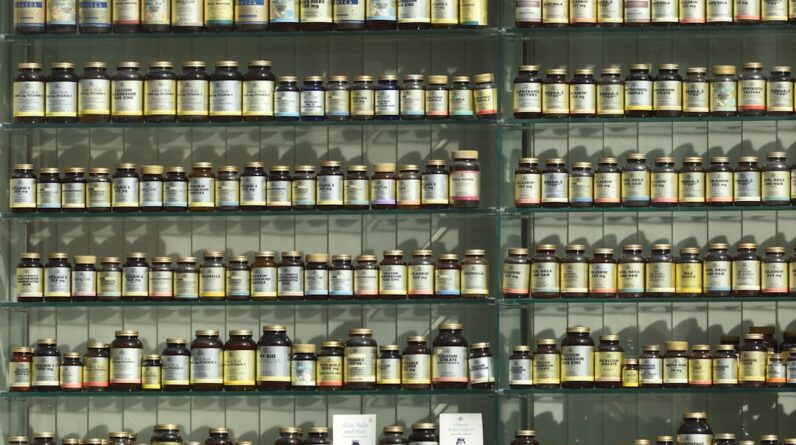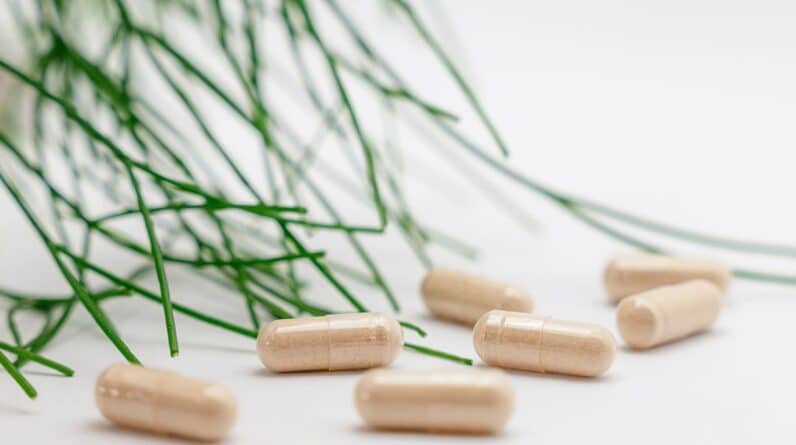Glutathione is a powerful antioxidant that plays a crucial role in maintaining your overall health. Composed of three amino acids—cysteine, glutamine, and glycine—this tripeptide is found in every cell of your body. It acts as a protector against oxidative stress, which can lead to cellular damage and various diseases.
You may not realize it, but glutathione is often referred to as the “master antioxidant” due to its ability to regenerate other antioxidants, such as vitamins C and E, enhancing their effectiveness. This unique property makes glutathione essential for your body’s defense mechanisms. In addition to its antioxidant capabilities, glutathione is involved in numerous biological processes, including DNA synthesis and repair, protein synthesis, and immune system function.
As you age or face various stressors, your body’s natural production of glutathione may decline, leading to an increased risk of chronic diseases and a weakened immune response. Understanding what glutathione is and how it functions can empower you to take proactive steps in maintaining your health and well-being.
Key Takeaways
- Glutathione is a powerful antioxidant produced in the body that plays a crucial role in detoxification and protecting against environmental toxins.
- Environmental toxins can negatively impact the body by causing oxidative stress and damaging cells, leading to various health issues.
- Glutathione is important for protecting the body against environmental toxins by neutralizing free radicals and supporting the liver’s detoxification processes.
- Ways to boost glutathione levels include consuming foods rich in sulfur, such as garlic and onions, and taking supplements like N-acetylcysteine and milk thistle.
- Incorporating glutathione into your wellness routine can have numerous benefits, including supporting immune function, promoting skin health, and improving overall well-being.
The Role of Glutathione in Detoxification
The Role of Glutathione in Detoxification
This tripeptide helps convert fat-soluble toxins into water-soluble compounds, making it easier for your kidneys and liver to excrete them. Without adequate levels of glutathione, your body may struggle to detoxify effectively, leading to a buildup of harmful substances that can compromise your health.
Neutralizing Free Radicals and Oxidative Stress
Moreover, glutathione is instrumental in neutralizing free radicals—unstable molecules that can cause oxidative damage to cells. By combating oxidative stress, glutathione not only aids in detoxification but also supports cellular repair and regeneration.
The Importance of Glutathione in Maintaining Health
This dual action makes it an indispensable ally in your body’s efforts to maintain balance and health. When you understand the importance of glutathione in detoxification, you can appreciate the need to support its levels for optimal bodily function.
How Environmental Toxins Affect the Body

Environmental toxins are ubiquitous in modern life, stemming from various sources such as pollution, pesticides, heavy metals, and chemicals found in household products. These harmful substances can infiltrate your body through inhalation, ingestion, or skin absorption, leading to a range of health issues. Over time, exposure to these toxins can accumulate, resulting in chronic inflammation, hormonal imbalances, and even serious diseases like cancer or neurodegenerative disorders.
The impact of environmental toxins on your body is profound. They can disrupt cellular function, impair immune responses, and contribute to oxidative stress. As your body struggles to cope with these challenges, you may experience symptoms such as fatigue, headaches, digestive issues, or skin problems.
Recognizing the effects of environmental toxins on your health is the first step toward taking action to mitigate their impact and protect yourself.
The Importance of Glutathione in Protecting Against Environmental Toxins
Given the pervasive nature of environmental toxins, the importance of glutathione in protecting your body cannot be overstated. This potent antioxidant acts as a frontline defense against the harmful effects of these substances. By neutralizing free radicals generated by toxins, glutathione helps prevent cellular damage and supports the overall integrity of your organs and systems.
Furthermore, glutathione’s role in detoxification becomes even more critical when considering the cumulative effects of environmental exposure. It assists in the conjugation process, where toxins are chemically modified to facilitate their excretion. This means that adequate levels of glutathione can significantly enhance your body’s ability to eliminate harmful substances before they cause lasting damage.
By prioritizing glutathione in your wellness routine, you can bolster your defenses against the onslaught of environmental toxins.
Ways to Boost Glutathione Levels
Boosting your glutathione levels can be achieved through various lifestyle changes and practices. One effective way is through regular exercise. Physical activity has been shown to enhance the production of glutathione in your body by promoting better circulation and oxygenation of tissues.
Engaging in activities such as aerobic exercises, strength training, or even yoga can stimulate your body’s natural antioxidant defenses. Another important factor is managing stress levels. Chronic stress can deplete your body’s glutathione reserves, making it essential to incorporate stress-reducing techniques into your daily routine.
Practices such as mindfulness meditation, deep breathing exercises, or spending time in nature can help lower stress hormones and support glutathione production. By being mindful of both physical activity and stress management, you can create an environment conducive to maintaining healthy glutathione levels.
Foods and Supplements that Support Glutathione Production

Incorporating specific foods into your diet can significantly enhance your body’s ability to produce glutathione. Foods rich in sulfur-containing amino acids—such as garlic, onions, cruciferous vegetables (like broccoli and Brussels sprouts), and legumes—are particularly beneficial. These foods provide the building blocks necessary for glutathione synthesis and can help replenish its levels in your body.
In addition to dietary sources, certain supplements can also support glutathione production. N-acetylcysteine (NAC) is a popular supplement known for its ability to boost glutathione levels directly. Other supplements like alpha-lipoic acid and vitamin C can also play a supportive role by recycling glutathione and enhancing its antioxidant effects.
By combining a nutrient-rich diet with targeted supplementation, you can effectively promote optimal glutathione levels and support your overall health.
Other Benefits of Glutathione
Beyond its well-known roles in detoxification and antioxidant defense, glutathione offers a myriad of other health benefits that are worth exploring. For instance, it plays a crucial role in immune function by supporting the proliferation and activity of immune cells. A robust immune system is essential for warding off infections and diseases, making glutathione an invaluable ally in maintaining your health.
Additionally, research suggests that glutathione may have a positive impact on skin health. Its antioxidant properties help combat oxidative stress that contributes to skin aging and damage from UV exposure. Some studies indicate that increasing glutathione levels may improve skin elasticity and reduce the appearance of fine lines and wrinkles.
By recognizing these additional benefits, you can appreciate how incorporating strategies to boost glutathione can enhance not only your internal health but also your external appearance.
Incorporating Glutathione into Your Wellness Routine
Incorporating glutathione into your wellness routine is a proactive step toward achieving optimal health and well-being. By understanding its vital roles in detoxification, protection against environmental toxins, and overall cellular function, you can make informed choices that support its production and maintenance within your body. From dietary adjustments to lifestyle changes like exercise and stress management, there are numerous ways to enhance your glutathione levels.
As you embark on this journey toward better health, consider integrating foods rich in sulfur-containing amino acids into your meals while exploring supplements that may further support glutathione production. Remember that maintaining healthy levels of this powerful antioxidant not only aids in detoxification but also bolsters your immune system and promotes radiant skin. By prioritizing glutathione in your wellness routine, you empower yourself to navigate the challenges posed by environmental toxins while fostering a healthier future for yourself.
Glutathione is a powerful antioxidant that plays a crucial role in detoxifying the body from environmental toxins. For more information on how to maintain optimal health and beauty through proper nutrition and supplementation, check out this article on health and beauty tips. Additionally, athletes and active individuals can benefit from supplements that support their performance and recovery, as discussed in this article on supplements for athletes and active individuals.
FAQs
What is glutathione?
Glutathione is a powerful antioxidant that is naturally produced in the body. It plays a crucial role in detoxification and protecting cells from damage caused by free radicals and environmental toxins.
How does glutathione help with environmental toxins?
Glutathione helps to neutralize and eliminate environmental toxins from the body by binding to the toxins and making them easier to excrete. It also helps to protect cells from oxidative stress caused by toxins.
What are some sources of environmental toxins?
Environmental toxins can be found in air pollution, water contamination, pesticides, heavy metals, and chemicals in household products and personal care items.
How can glutathione levels be increased in the body?
Glutathione levels can be increased through consuming foods rich in sulfur, such as garlic, onions, and cruciferous vegetables, as well as through supplementation with glutathione precursors like N-acetylcysteine (NAC) and alpha-lipoic acid.
Are there any risks or side effects associated with glutathione supplementation?
While glutathione supplementation is generally considered safe, some individuals may experience mild side effects such as stomach upset or allergic reactions. It is important to consult with a healthcare professional before starting any new supplement regimen.






